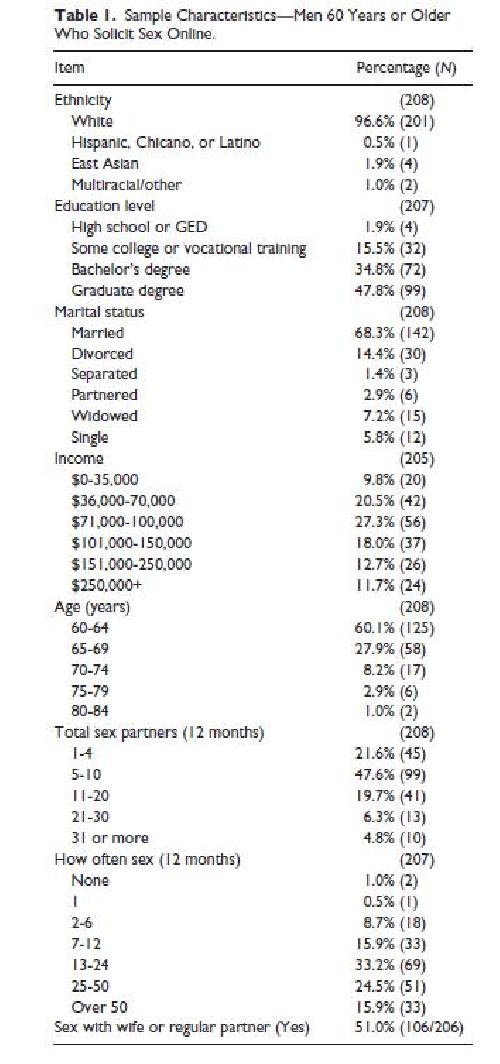You may not think of men over 60 when you think of sex, but it happens. A lot. And when it can't happen the usual way, they are willing to pay for it - and they pay more and use less protection if they are a regular client.
Obviously the assumption, or documented medical fact, is that both parties are disease-free, but it still involves a certain amount of trust - and a certain amount more money.
The new survey in the American Journal of Men's Health asked about the habits of American men between the ages of 60 and 84 who pay for sex and found that the older they were, the more frequently they paid for sex and the more likely they were to have experienced unprotected sexual intercourse multiple times with their favorite commercial sex providers.
Using various sex provider review websites and discussion boards, Dr. Christine Milrod and University of Portland sociology professor Martin Monto surveyed 208 men between the ages of 60 and 84 who solicited sex workers in order to assess their condom use and sexual risk taking. The researchers found that:

- 59.2% reported not always using protection with sex workers. 95% reported avoiding protection for manual masturbation and 91% reported avoiding protection for oral sex.
- 31.1% reported having been diagnosed with a STI at some point during their lifetime. 10.2% were once diagnosed with gonorrhea, 10.1% with genital warts, 7.8% with genital herpes and 5.3% with chlamydia.
- Men who reported more unprotected sex acts perceived their HIV risk to be higher and were more likely to have been diagnosed with a STI.
- 77.4% reported that they perceived their likelihood of becoming infected with HIV as "low," while only 62% reported having been tested for HIV.
- 29.2% reported having an "all-time favorite" sex provider with whom they engage repeatedly. Being more emotionally attached to sex workers was positively related to more unprotected sex.
- Of the 60- to 84-year-old men surveyed, advancing age was also positively associated with unprotected sex acts.
- 57.2% reported talking with a doctor about sex since turning 60, though 82.2% of these conversations were initiated by the patients, not by their doctors.
The researchers wrote, "Medical and mental health clinicians should not assume that old age is a barrier to paying for sex, particularly among the generations that began engaging in sexual activity prior to the epidemic emergence of the HIV virus."





Comments